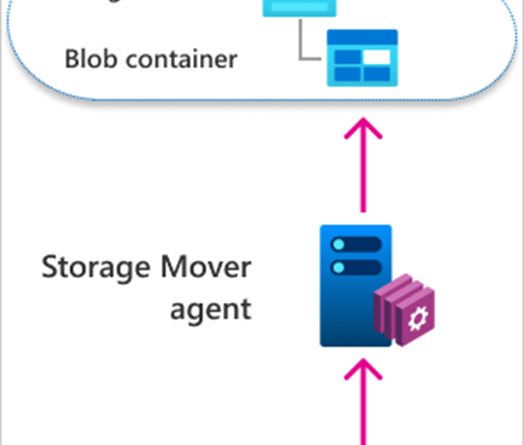Azure Storage Mover–A managed migration service for Azure Storage
File storage is a critical part of any organization’s on-premises IT infrastructure. As organizations migrate more of their applications and user shares to the cloud, they often face challenges in migrating the associated file data. Having the right tools and services is essential to successful migrations.
Across workloads, there can be a wide range of file sizes, counts, types, and access patterns. In addition to supporting a variety of file data, migration services must minimize downtime, especially on mission-critical file shares.
In February of 2022, we launched the Azure file migration program that provides no-cost migration to our customers, via a choice of storage migration partners.
Today, we are adding another choice for file migration with the preview launch of Azure Storage Mover, which is a fully managed, hybrid migration service that makes migrating files and folders into Azure a breeze.
The key capabilities of the Azure Storage Mover preview are:
NFS share to Azure blob container
With this preview release, we focus on the migration of an on-premises network file system (NFS) share to an Azure blob container. Storage Mover will support many additional source and target combinations over the coming months.
Cloud-driven migrations
Managing copy jobs at scale without a coordinating service can be time consuming and error-prone. Individual jobs have to be monitored and any errors resolved. It’s hard to maintain comprehensive oversight to ensure a complete and successful migration of your data.
With Azure Storage Mover you can express your migration plan in Azure and when you are ready, conveniently start and track migrations right from the Azure portal, PowerShell, or CLI. This allows you to utilize Azure Storage Mover for a one-time migration project or for any repeated data movement needs.
Azure Storage Mover is a hybrid service with migration agents that you’ll deploy close to your source storage. All agents can be managed from the same place in Azure, even if they are deployed across the globe.
Scale and performance
Many aspects contribute to a high-performance migration service. Fast data movement through the Azure Storage REST protocol and a clear separation of the management path from the data path are among the most important. Each agent will send your files and folders directly to the target storage in Azure.
Directly sending the data to the target optimizes the performance of your migration because the data doesn’t need to be processed through a cloud service or through a different Azure region from where the target storage is deployed in. For example, this optimization is key for migrations that happen across geographically diverse branch offices that will likely target Azure Storage in their region.
What’s next for Storage Mover?
There are many steps in a cloud migration that need to happen before the first byte can be copied. A deep understanding of your data estate is essential to a balanced cloud solution design for your workloads.
When we combine that with a strategy to minimize downtime, and manage and monitor migration jobs at scale, then we’ve arrived at our vision for the Storage Mover service. This roadmap for this vision includes:
- Support for more sources and Azure Storage targets.
- More options to tailor a migration to your needs.
- Automatically loading possible sources into the service. That’s more than just convenience; it enables large-scale migrations and reduces mistakes from manual input.
- Deep insights about selected sources for a sound cloud solution design.
- Provisioning target storage automatically based on your migration plan.
- Running post-migration tasks such as data validation, enabling data protection, and completing migration of the rest of the workload, etc.
Learn more
- Find out more with our service overview.
- Learn how to deploy Azure Storage Mover.
- Explore Storage Mover in the Azure portal.
- Learn about Storage Mover PowerShell.
Source: Azure Blog Feed




